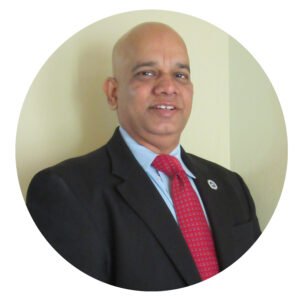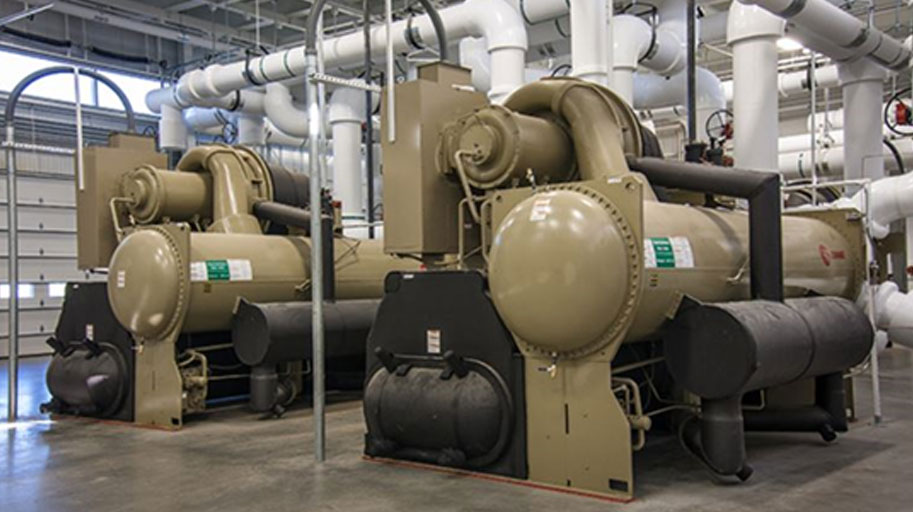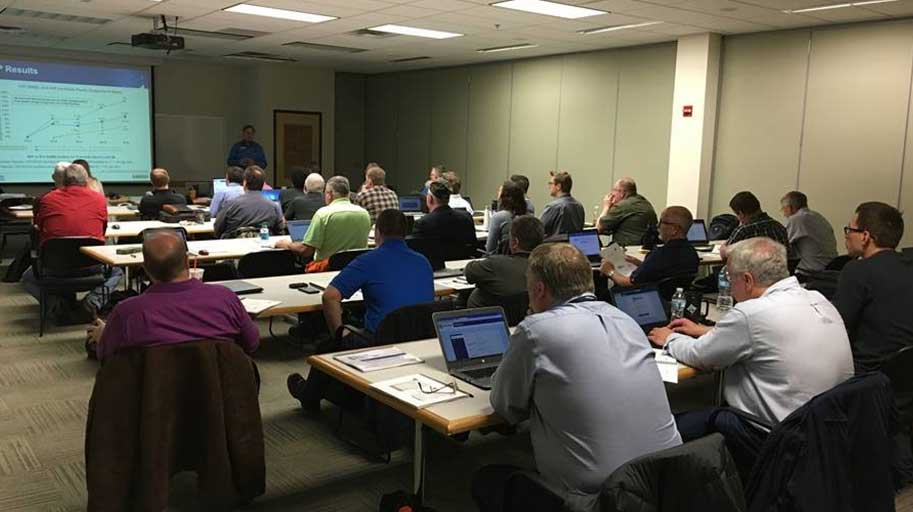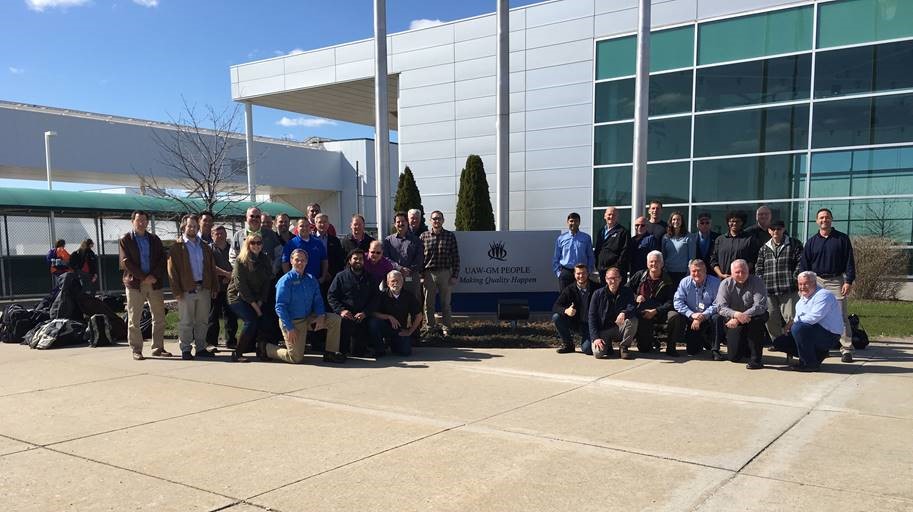The Better Plants program will deliver a VINPLT on industrial process cooling chilled water plant (Process Cooling) systems from June 2 to July 21, 2022. The Process Cooling VINPLT will be performed by industrial experts and Technical Account Managers using online video communication technologies. The Process Cooling VINPLT comprises 2.5 -hour online training sessions (2-hours formal training and optional 0.5-hour Q&A) that will be delivered on every Thursday 10:00 AM – 12:30 PM ET for eight (8) consecutive weeks. Participating in this VINPLT is free and open to all the Better Plants program partners. This VINPLT event is limited to 20 participants from 6–8 companies or facilities.
Participants will be trained on industrial chilled water plant system fundamentals and undertaking of a system-specific energy assessment, including hands-on training on the Chilled Water System Assessment Tool (CWSAT). Additionally, 3EPlus (Insulation Evaluation software), calculators and the pump assessment module within the Manufacturing Energy Assessment Software for Utility Reduction (MEASUR) tool will be demonstrated and used for quantifying opportunities identified. To maximize the benefits from attending VINPLTs, homework assignments will be given to the participants at the end of each session and will be due by the next session. These homework assignments are designed to enhance participants’ understanding of industrial chilled water plant systems, as well as to identify and quantify energy savings opportunities in their respective plants. During the last session of the VINPLT, participants are expected to create a summary presentation based on their assessment, present their findings, and share the scrubbed version with DOE.
At the completion of the VINPLT, Professional Development Hours (PDHs) Certificates will be prepared for the attendees on demand basis. Participants are expected to collect measurements/data from their own process cooling systems, perform an energy assessment, and identify energy efficiency opportunities with the help from the instructor. To collect the assessment data, in some cases, diagnostic equipment will be arranged and shipped to the partners. The Better Plants diagnostic equipment are available on a first come, first serve basis.
June 2 to July 21, 2022; Every Thursday 10:00 AM–12:30 PM ET (2-hour formal training + optional 0.5-hour Q&A)
Week 1 – Industrial Chilled Water Systems Fundamentals; June 2, 2022
Introduction of the Better Plants Program by US DOE representative. Industrial chilled water systems experts describe the overall process of conducting a Process Cooling VINPLT, explain the fundamentals of industrial chilled water plant systems and provide an overview of the types of systems and components of the system.
Week 2 – Review of Chilled Water system Scoping Tool, Efficiency Metrics & Calculations; June 9, 2022
VINPLT attendees will be introduced to the Chilled Water system Scoping Tool (CWST). The focus of the session will be to demonstrate the functionality and use of CWST. This will be followed by defining chilled water plant efficiency metrics and the calculations that are typically done to understand operations and optimize the systems.
Week 3 – Introduction to Chilled Water System Assessment Tool (CWSAT); June 16, 2022
CWSAT (developed by University of Massachusetts) will be demonstrated and the VINPLT attendees will use an example industrial chilled water system to build their models. The aim of this session is to build enough proficiency in the attendees so that each of them can then be able to model and baseline their own plant systems.
Week 4 – Using CWSAT to Quantify Energy Efficiency Opportunities – Part 1; June 23, 2022
CWSAT has been pre-programmed to model several energy efficiency opportunities in chilled water systems and this session will explain the fundamentals of the opportunity, quantification of the opportunity and how to implement those opportunities in the field. Some examples include – set-point temperature changes, chiller replacement, etc.
Week 5 – Using CWSAT to Quantify Energy Efficiency Opportunities – Part 2; June 30, 2022
This session will get into the more complex energy efficiency opportunities for optimizing industrial chilled water systems. Several of these opportunities can be modeled by using CWSAT and these will be functionally demonstrated on the sample industrial system. Examples include – use of free cooling, air-cooled versus water-cooled, etc.
Week 6 – US DOE MEASUR, 3EPlus, etc. and Undertaking a VINPLT Assessment & Reporting; July 7, 2022
Attendees will learn about all the additional tools and resources available to complete a chilled water plant system energy assessment. This session will also highlight all the attributes of a successful VINPLT assessment and reporting. The attendees will now embark on finalizing their CWSAT models and completing their own VINPLT assessments.
Week 7 – Case studies, Refrigerants – past, present & future, Reclamation & O&M Best Practices; July 14, 2022
Selected case studies from industrial process cooling applications will be presented in this session. These will reflect opportunities that are commonly found in chilled water plants. A brief overview of the Refrigerants landscape will be presented. An understanding of the operations and maintenance best practices and refrigerant reclamation for ensuring energy efficient operations will be discussed.
Week 8 – Industrial Process Cooling System VINPLT Wrap-up Presentations; July 21, 2022
Over the past seven weeks, VINPLT attendees have been provided homework that focused on the attendees building their own chilled water system model in CWSAT and then quantify applicable energy efficiency opportunities. VINPLT attendees will present and discuss the results from their own system assessments. VINPLT participants could invite their upper management to attend the wrap-up session.

Mr. Riyaz Papar
Mr. Riyaz Papar is a registered Professional Engineer (ME), a Certified Energy Manager and a Fellow of ASME and ASHRAE. He is the CEO of C2A Sustainable Solutions, a company based in The Woodlands, Texas.
Mr. Papar is a US DOE Senior Instructor and a US DOE Qualified Specialist (Steam). Mr. Papar is also an Industrial Heating and Cooling System International Expert at United Nations Industrial Development Organization.
Mr. Papar has spent almost three decades in energy efficiency consulting for thermal systems – steam, cogeneration, waste heat recovery, chilled water and refrigeration. Using a systems approach methodology in thermal systems, he has completed ~150 energy assessments both in the US and internationally. Several of these energy assessments have resulted in implemented projects that have continued to save millions of dollars, valuable energy resources and reduced greenhouse gas emissions world-wide.
Mr. Papar has trained more than 7,500 industry personnel internationally. He has worked as Lead Instructor/Facilitator with multinational government and industrial agencies in South Africa, Vietnam, Thailand, Indonesia, Malaysia, Philippines, China, India, Kazakhstan, Egypt, Myanmar and Mauritius to disseminate this capacity building effort.
Mr. Papar has been an author of more than 50 Technical Publications in Journals, Conference Proceedings & Trade Magazines. Mr. Papar has also been an “Energy Saver” columnist for the Chemical Processing magazine published by PutmanMedia.
Mr. Papar has a Master’s (ME) from the University of Maryland, College Park and a Bachelor’s (ME) from the Indian Institute of Technology, Mumba




